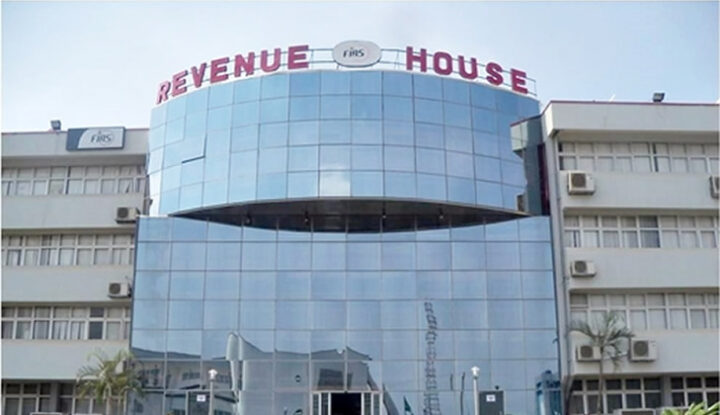The Federal Inland Revenue Service (FIRS) has officially named eTranzact International Plc as a key service provider for the implementation of its electronic invoicing (e-invoicing) platform, a move expected to modernise Nigeria’s tax administration and boost government revenue. The development is part of ongoing reforms by the tax authority to improve transparency, close leakages, and strengthen compliance across various sectors of the economy.
In a statement confirming the appointment, FIRS explained that eTranzact will provide technical and operational support for the deployment of the e-invoicing system, which is designed to ensure that all value-added tax (VAT) and related transactions are automatically captured in real time. The system, according to the agency, will improve the accuracy of tax reporting, reduce fraud, and eliminate manual bottlenecks that have previously slowed tax collection processes.

Chairman of the FIRS, Zacch Adedeji, described the initiative as a strategic milestone in the agency’s digital transformation agenda. He stressed that the appointment of eTranzact reflects the government’s determination to leverage technology in order to create a more efficient and transparent tax ecosystem. By automating invoicing processes, FIRS hopes to expand the tax net, enhance compliance by businesses, and significantly increase revenue mobilisation for the federal government.
Adedeji noted that Nigeria has been losing substantial revenues due to under-reporting, non-remittance, and inefficiencies in manual invoicing systems. The introduction of the e-invoicing platform, with eTranzact as a partner, is therefore expected to plug these gaps while also simplifying the process for taxpayers. “This collaboration represents a new era for tax compliance in Nigeria,” he said, “and we are confident it will strengthen the credibility of our system and make tax administration more effective.”
For its part, eTranzact expressed readiness to deliver on the mandate, citing its track record in providing payment technology infrastructure and financial services integration across Nigeria. The company highlighted its experience in handling large-scale transaction processing, noting that the e-invoicing system will be designed to handle high volumes securely and efficiently, ensuring smooth adoption by businesses of all sizes.
Industry analysts have described the partnership as a major boost for Nigeria’s fiscal operations, given the need to enhance non-oil revenue generation in the face of fluctuating oil earnings. They argue that e-invoicing will provide FIRS with real-time visibility into business transactions, making it easier to track tax obligations, reduce evasion, and foster greater accountability.
The new system will apply to businesses across key sectors, particularly those with significant VAT obligations. Companies will now be required to issue electronic invoices that automatically integrate into the FIRS database. This will allow the tax authority to reconcile reported figures with actual sales records, ensuring accurate tax remittance. Analysts believe that such transparency will help level the playing field between compliant businesses and those previously engaged in under-reporting.
Tax experts further explained that the adoption of e-invoicing aligns Nigeria with global best practices. Countries such as Kenya, South Africa, and Brazil have already introduced similar systems, resulting in significant improvements in tax collection efficiency. Nigeria’s move, they noted, signals a strong commitment to modernising its revenue administration and tackling systemic leakages.
While welcoming the development, some business groups have raised concerns about potential implementation challenges, particularly for small and medium-sized enterprises (SMEs) that may lack the necessary infrastructure or technical expertise to comply. FIRS has, however, assured stakeholders that adequate support, training, and phased rollouts will be provided to ensure smooth adoption. The agency emphasised that the long-term benefits of e-invoicing, including simplified compliance and reduced administrative burden, will outweigh the initial learning curve.
ETranzact also announced plans to collaborate with industry associations, trade groups, and technology providers to ensure seamless integration and onboarding of businesses. The company said it is committed to building a user-friendly system that minimises disruption while maximising compliance.
The FIRS chairman further reassured businesses that the system is not intended to impose additional tax burdens but rather to ensure proper remittance of existing obligations. He emphasised that companies already fulfilling their tax responsibilities will find the platform beneficial, as it will provide more clarity, certainty, and documentation for transactions.
Observers believe that the introduction of the e-invoicing system could have far-reaching impacts on Nigeria’s fiscal stability. By curbing leakages, increasing compliance, and boosting non-oil revenue, the government would have more resources to fund infrastructure, education, healthcare, and social programmes. The move also aligns with the administration’s broader fiscal reforms aimed at reducing dependence on oil revenue and strengthening domestic revenue mobilisation.
The partnership between FIRS and eTranzact marks a significant step forward in Nigeria’s quest to modernise its tax administration. As the system is rolled out, stakeholders will be watching closely to assess its effectiveness, particularly in terms of compliance rates, ease of adoption, and its impact on government revenue.
For FIRS, the collaboration reflects its commitment to embracing digital transformation and building a tax system that is fair, transparent, and efficient. For eTranzact, it represents an opportunity to play a pivotal role in shaping Nigeria’s fiscal future through innovative technology. And for Nigerian businesses, it signals a shift toward a more structured, technology-driven tax environment that rewards compliance and penalises evasion.
Support InfoStride News' Credible Journalism: Only credible journalism can guarantee a fair, accountable and transparent society, including democracy and government. It involves a lot of efforts and money. We need your support. Click here to Donate
